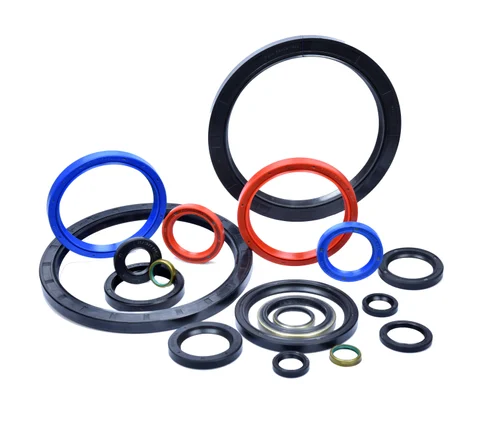The Essential Guide to TC Seals, TG4 Seals, and UN Seals: Understanding Their Features and Applications
 November 30, -0001
November 30, -0001 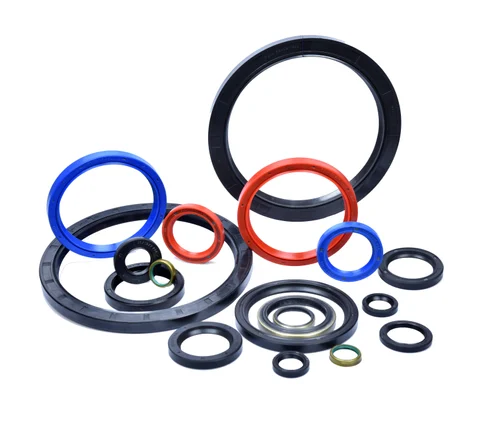 |
Seals have played an important component in ensuring efficiency and longevity for machinery and equipment in industries where their usage can be applied. Among these are the TC seals, TG4 seals, and UN seals, which stand out due to their unique customized designs and versatile applications. In this blog post, we shall look at each of the details of these seals: construction, application, and the many benefits they will provide. |
What is a Seal?
A seal is a critical mechanical component designed to avoid the leakage of fluid or gases across interfaces, especially in those of rotating machinery where system integrity is important. In fact, these seals will play a very important role in different applications by effectively minimizing friction that may enhance performance and energy efficiency, while protecting against contamination that may compromise machinery function. Seals also contribute to the conservation of lubricant systems by maintaining lubricants within and facilitating smooth operation for reduced wear of parts. The various types of seals, such as TC for the tandem seal, TG4 for the four-lip seal, and UN for the universal seal, have been developed in very special ways to suit particular operational needs and conditions; thus, providing close-to-reality solutions in increasing durability and reliability within diverse environments and industries. Coupled with development in many other areas, as technology advances, so does the design and materials used in seals, contributing considerably to improved performance and extended service life in a wide range of applications.
1. TC Seal: A Reliable Two-Piece Solution
These are commonly referred to as two-piece or rotary seals, engineered for reliable leak-free operation against fluid leakage and contaminants' ingress in rotary equipment. Their design enables them to create a strong seal that improves efficiency and reliability in various industrial applications. TC seals have proved very efficient in the right separation of lubricants from contamination and hence critical performance and longevity for equipment. Apart from that, their construction normally consists of two major parts that cooperate in tight sealing, but at the same time providing dynamic motion for the rotating parts. In these contexts, the value of TC seals becomes high when precision and durability are needed, hence contributing a great deal to low maintenance and high productivity in machinery operations. For this reason, TC seals remain a favorite choice among industries concerned with the delivery of great service and reliability in their seal solutions.
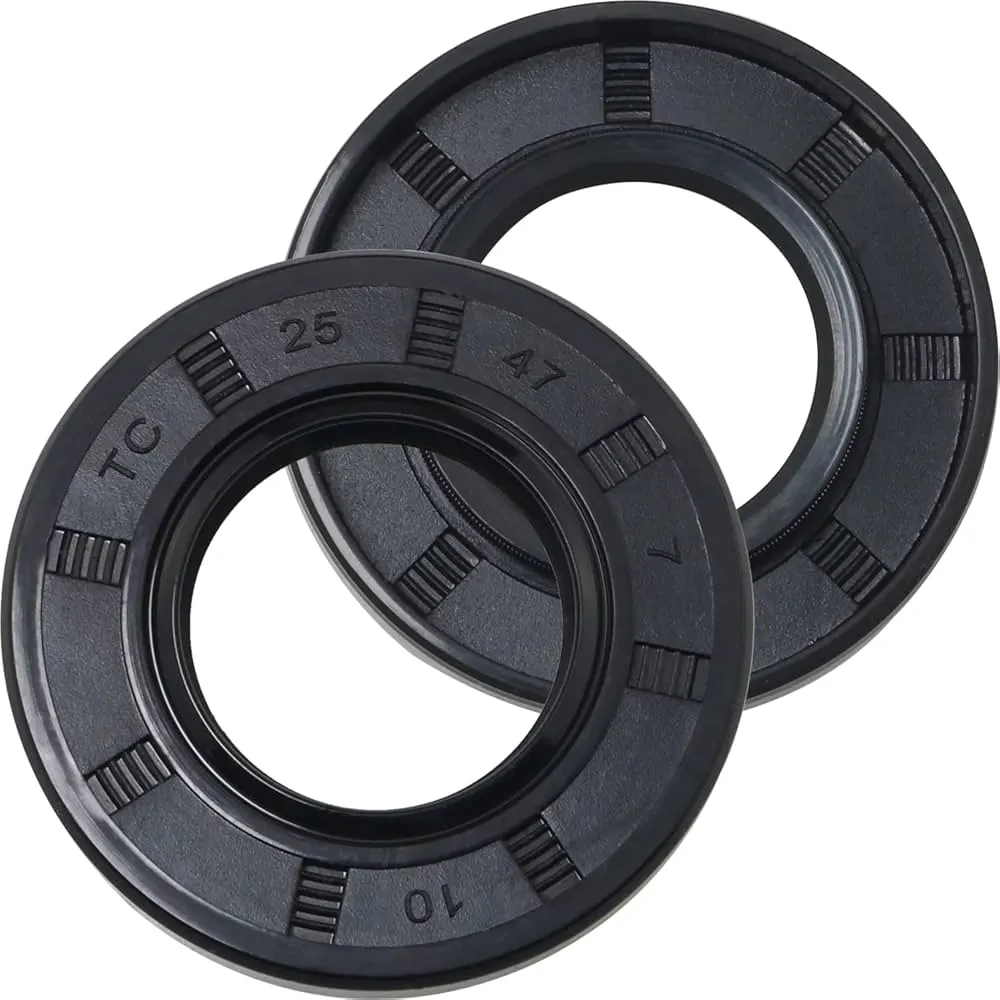
1.1 Construction of TC Seals
Most of the materials used in the construction of TC seals include high-performance elastomers like nitrile rubber, fluorocarbon, and silicone. All three have different properties in terms of temperature resistance and chemical compatibility, with applications depending on where the seal will be applied. Essentially, a TC seal comprises a rubber lip pressed against a rotating shaft that creates a tight seal, effectively preventing leakage of fluids and infiltration of contaminants. This compression is vital to a durable seal that can be sustained over time. This seal is quite critical in the system operating with high speeds or high pressures. Major parts of two-piece type: Outer Casings These are made from metal or plastic materials to provide structural support required by the seal. It also imparts the necessary stability for service under mechanical stresses. These provide accommodation for materials and structural elements that enable TC seals to perform reliably in the operation of machinery in many industries, while maintaining low maintenance needs and reducing downtime. This capability for flexibility in such manners has made TC seals the option of choice in many applications where reliability requires strength in the sealing solution.
1.2 Applications of TC Seals
- Automotive Industry: The demand for TC seals has a wide application in the automobile industry, where they are fitted into those areas that are critical in nature in the engines, gearboxes, and axles. They perform optimally at such places by preventing oil and fluid leakage, shielding internal parts from dust and contaminants for better performance and longevity.
- Industrial Machinery: Applications of TC seals are very vital in the field of industrial machinery, such as pumps, compressors, and motors. Actually, a seal is quite critical to efficiency; otherwise, the leakage of fluids can lead to operational shutdowns and extra costs related to maintaining them. Their reliable sealing capability supports continuous operation even in most demanding industrial environments.
- Aerospace Applications: Application of TC seals in aerospace ensures reliability and performance in several rotor systems and fuel systems. The ability of TC seals to bear extreme conditions, especially high temperatures and pressures, offers this material a number of critical applications for which safety and operational integrity are vital.
1.3 Advantages of TC Seals
- Sealing Ability: TC seals are designed for tight sealing on rotating shafts to offer very effective leakage limits on fluids and to keep out foreign contaminants. This kind of tight sealing is required for machinery to ensure sustained performance without breakdown.
- Tough Environment Application Endurance: Being made from robust materials, such as nitrile rubber, fluorocarbon, or silicone, TC seals are extremely resilient-even in very hostile environments. With wide temperature and pressure extremes, and resistance to many chemicals, the seals are fitting for several industrious applications.
- Cost-Effectiveness: Generally, TC-based seals tend to be relatively inexpensive when compared with other sealing solutions. Their durability and effectiveness contribute to lower total cost of ownership by reducing the frequency of maintenance and repairs. This is especially attractive in an industrial setting where losses occasioned by shutdowns can be quite appreciable.
2. TG4 Seal: Heavy-Duty Applications
TG4 Seals are among those seals categorized as heavy-duty, specifically performed for dealing with applications involving high pressures and extremely high temperatures. These seals are engineered for dependability under extreme conditions, using materials that can withstand higher temperatures and hold their integrity under intense pressure. Designed to last longer, TG4 seals minimize wear and frequent need for replacement, hence being cost-effective. It allows applications within automotive sectors like turbochargers and transmissions and in some industrial machineries, including hydraulic systems and compressors. Besides, these seals protect very well against leakage and contamination for perfect performance and protection against the damage of the vital elements.
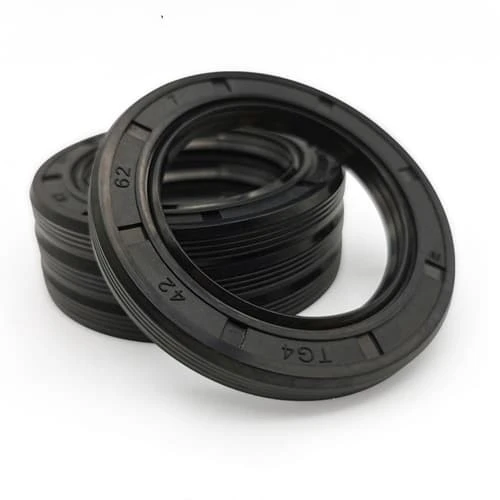
2.1 Construction of TG4 Seals
Most seals made from advanced elastomers such as HNBR have provided TG4 seals with high-temperature and chemical resistance. This construction enables TG4 seals to work in really extreme environments where conventional materials cannot work. The addition of HNBR provides toughness to the seals so that they are resistant to extreme temperatures and a wide range of chemicals, thus fitting into a wide range of applications. Another crucial factor that makes the TG4 seals efficient is precision engineering in their design; the impact of this precision engineering is to minimize the risk of leaks and enhance the overall efficiency of the systems in which they are used. Their suitability for heavy-duty use in various industries, thus, lies with this combination of high-performance materials and meticulous design.
2.2 Applications of TG4 Seals
- Heavy Machinery: TG4 is in wide application in heavy machinery, especially in the construction equipment of excavators, bulldozers, and cranes. Withstanding high pressures and temperatures, TG4 can be employed in conditions where reliability and durability are indispensable.
- Hydraulic Cylinders and Pumps: These are some of the important seals in any hydraulic system; they ensure maximum efficiency in hydraulic cylinders and pumps. They prevent leaks and ensure pressure maintenance for smooth operation of different kinds of hydraulic machinery.
- Oil and Gas Drilling Equipment: Seals TG4 are very common in most drilling equipment used in the oil and gas industries. They are really sturdy in build, hence allowing them to bear the tough conditions that normally characterize such drilling sites, such as corrosive fluids and extreme pressures.
- Automotive Industry Applications: They are applied in automotive industries in high-performance engines, transmission systems, and turbochargers, especially where temperature and pressure are usually very high.
- Industrial Machinery: The seals find great application in industry machinery, including compressors and pumps, for which the integrity of the seal is critical in terms of fluid loss and operational efficiency.
2.3 Benefits of TG4 Seals
- Reliability under Extreme Conditions: TG4 is engineered for extreme operating conditions, thereby assuring the same high service reliability as all our seals. Robust design enables their operation at very high pressures and temperatures, as well as in contact with very aggressive chemicals; such is the reason they are chosen in heavy machinery and other demanding industrial sectors.
- Improved Sealing Performance: Advanced sealing technology provides TG4 seals with very good sealing performance even under dynamic conditions. This attribute largely inhibits operational failure by preventing leakages and the slightest contamination to machinery and equipment.
- Ability to Withstand High Cycling and Short-Stroke Motions: The application of TG4 seals applies particularly when high cycling rates with short-stroke motions are commonly encountered, for instance in hydraulic systems and heavy machinery. The design allows fast motion and frequency cycling without loss of sealing, hence improving efficiency and the life of an operating system.
- Less risk of downtime: The efficiency in fighting against leakage and contamination using TG4 seals reduces unplanned downtime. Its reliability means continuous machinery operation, hence increasing productivity and reducing maintenance costs.
- Wide Application Range: The applications of TG4 seals can span from construction to agriculture and even oil and gas. This makes them a deserving part of every application with various needs where the sealing performance is so important.
- Long Service Life: The TG4 seals are made of top-quality material and are constructed to last. Their robustness extends the period of service that again not only reduces frequency but also contributes towards lowering operation costs in the long run.
3. UN Seal: Universal Sealing
UN seals have a range of sealing options and can operate accordingly in static or dynamic conditions. Their robust design assures reliable performance against leakage and contamination in a wide range of applications for a number of industries. Compatible with a wide range of fluids and gases, UN seals facilitate inventory management and minimize the need for multiple types of seals. They are characterized by ease of installation and robust construction that contributes to reducing maintenance costs, extends service life, and thus represents a cost-effective sealing solution to enhance operational efficiency.
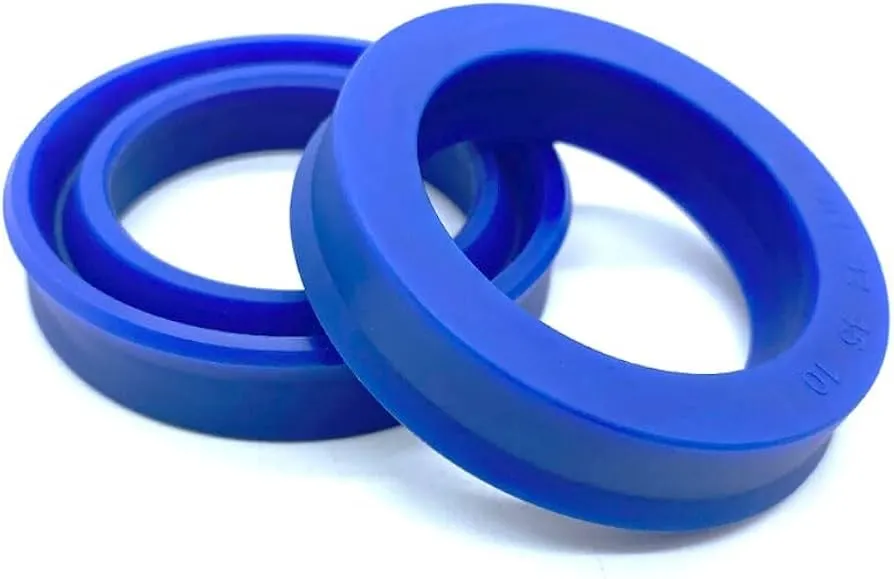
3.1 Construction of UN Seals
These are general base materials for UN seals: polyurethane, silicone, fluoro-elastomers. These materials are chosen based on their very good sealing characteristics, excellent in chemical resistance, and operating over a wide range of temperatures and pressures. This large variety in the range of elastomer options can enable UN seals to suit particular application needs for consistent performance and longevity.
3.2 Applications of UN Seals
- Applications in Automotive Engineering: UN seals have wide applications in automotive engineering and are used in places of paramount importance, such as in engines and fuel systems. It prevents leaks, preserves pressure, and works towards general efficiency for various components of an automobile at large, thus contributing to huge vehicle performance and safety.
- Mechanisms of Aerospace and Defense: The UN seals play an important role in aerospace and defense for having ensured the integrity and reliability of a critical system. They are manufactured in such a way that they can bear extreme temperatures and pressures; hence, they are crucial for aircraft, spacecraft, and equipment applied in military operations where failure is not an option.
- Consumer Products: UN seals can mostly be found in the top range of consumer products, starting from taps to appliances. These seals effectively seal against leaks for smooth operations, creating good user experience and maintaining longevity of the products. It allows them to be used in a large gamut of items that range from common household uses to major appliances like washing machines.
3.3 Advantages of UN Seals
- Smaller range of Inventory: One of the major advantages associated with UN seals is that they reduce the variety of seal types kept in any given inventory. Reduced variety means less hassle with inventory management and, therefore, facilitates the processes of procurement, hence cost reduction and efficiency in operation.
- Simplified Installation and Replacement: The UN seals are designed in such a way that their installation and replacement are pretty easy, hence considerably reducing maintenance time. This user-friendly feature enables the maintenance personnel to do the repairs or swaps faster, reducing downtime hence improving overall productivity in various applications.
- Cost-effective Sealing: The UN seals provide excellent sealing without necessarily having to invest a lot financially. Leak prevention and sustaining pressure throughout the course of time will add to savings through a reduction in costly repairs and less waste from loss of fluids.
Conclusion
Seals are critical components that add a great deal of effectiveness and longevity to machines and tools for many different industries. This blog has considered three kinds of seals: TC, TG4, and UN seals. Each of them has its particular configuration, field of application, and advantages.
TC seals were designed for leak-free reliability combined with high resistance to contaminants. Because of this, this sealing system finds great demand in automotive, industrial machinery, and aerospace. The two-piece design increases durability and reduces maintenance needs, hence increasing productivity.
The TG4 seal is designed in a way that it can work under extreme temperatures and pressures. Manufacturing of such seals with high-performance elastomers makes them quite reliable for dangerous environments, including heavy machinery and oil and gas drilling equipment. The robust construction of the TG4 seal gives rise to better sealing performances and longer service life, hence reducing operational downtime and maintenance costs.
Since UN seals can be applied universally, this calls for less variety in the inventory of seals. They have been less time-consuming to install and replace, which reduces maintenance time and, thus, adds cost savings. Applications throughout industries from automotive and aerospace to consumer products demonstrate their versatility and cost-effectiveness, as a result of the assured performance of the UN seals.
Each of those seal types provides some special benefits in operation due to their particular nature, so all of them will be perfect in various environments and even under extreme operating conditions or for multiple applications in versatile sealing. Understanding TC Seals, TG4 Seals, and UN Seals will give you the choice of the appropriate sealing solution for your particular applications.
The proper selection of the seal is of utmost importance to improve machinery reliability and minimize operational costs, thus giving maximum efficiency. You will be able to ensure performance and effectiveness in your long-term sealing by taking into consideration all those important variables, including temperature ranges, chemical exposure, and mechanical stresses.
In today's industrially demanding and fast world, the right technology for sealing holds the key to operational success and overall equipment integrity.
Seals have played an important component in ensuring efficiency and longevity for machinery and equipment in industries where their usage can be applied. Among these are the TC seals, TG4 seals, and UN seals, which stand out due to their unique customized designs and versatile applications. In this blog post, we shall look at each of the details of these seals: construction, application, and the many benefits they will provide.
What is a Seal?
A seal is a critical mechanical component designed to avoid the leakage of fluid or gases across interfaces, especially in those of rotating machinery where system integrity is important. In fact, these seals will play a very important role in different applications by effectively minimizing friction that may enhance performance and energy efficiency, while protecting against contamination that may compromise machinery function. Seals also contribute to the conservation of lubricant systems by maintaining lubricants within and facilitating smooth operation for reduced wear of parts. The various types of seals, such as TC for the tandem seal, TG4 for the four-lip seal, and UN for the universal seal, have been developed in very special ways to suit particular operational needs and conditions; thus, providing close-to-reality solutions in increasing durability and reliability within diverse environments and industries. Coupled with development in many other areas, as technology advances, so does the design and materials used in seals, contributing considerably to improved performance and extended service life in a wide range of applications.
1. TC Seal: A Reliable Two-Piece Solution
These are commonly referred to as two-piece or rotary seals, engineered for reliable leak-free operation against fluid leakage and contaminants' ingress in rotary equipment. Their design enables them to create a strong seal that improves efficiency and reliability in various industrial applications. TC seals have proved very efficient in the right separation of lubricants from contamination and hence critical performance and longevity for equipment. Apart from that, their construction normally consists of two major parts that cooperate in tight sealing, but at the same time providing dynamic motion for the rotating parts. In these contexts, the value of TC seals becomes high when precision and durability are needed, hence contributing a great deal to low maintenance and high productivity in machinery operations. For this reason, TC seals remain a favorite choice among industries concerned with the delivery of great service and reliability in their seal solutions.

1.1 Construction of TC Seals
Most of the materials used in the construction of TC seals include high-performance elastomers like nitrile rubber, fluorocarbon, and silicone. All three have different properties in terms of temperature resistance and chemical compatibility, with applications depending on where the seal will be applied. Essentially, a TC seal comprises a rubber lip pressed against a rotating shaft that creates a tight seal, effectively preventing leakage of fluids and infiltration of contaminants. This compression is vital to a durable seal that can be sustained over time. This seal is quite critical in the system operating with high speeds or high pressures. Major parts of two-piece type: Outer Casings These are made from metal or plastic materials to provide structural support required by the seal. It also imparts the necessary stability for service under mechanical stresses. These provide accommodation for materials and structural elements that enable TC seals to perform reliably in the operation of machinery in many industries, while maintaining low maintenance needs and reducing downtime. This capability for flexibility in such manners has made TC seals the option of choice in many applications where reliability requires strength in the sealing solution.
1.2 Applications of TC Seals
- Automotive Industry: The demand for TC seals has a wide application in the automobile industry, where they are fitted into those areas that are critical in nature in the engines, gearboxes, and axles. They perform optimally at such places by preventing oil and fluid leakage, shielding internal parts from dust and contaminants for better performance and longevity.
- Industrial Machinery: Applications of TC seals are very vital in the field of industrial machinery, such as pumps, compressors, and motors. Actually, a seal is quite critical to efficiency; otherwise, the leakage of fluids can lead to operational shutdowns and extra costs related to maintaining them. Their reliable sealing capability supports continuous operation even in most demanding industrial environments.
- Aerospace Applications: Application of TC seals in aerospace ensures reliability and performance in several rotor systems and fuel systems. The ability of TC seals to bear extreme conditions, especially high temperatures and pressures, offers this material a number of critical applications for which safety and operational integrity are vital.
1.3 Advantages of TC Seals
- Sealing Ability: TC seals are designed for tight sealing on rotating shafts to offer very effective leakage limits on fluids and to keep out foreign contaminants. This kind of tight sealing is required for machinery to ensure sustained performance without breakdown.
- Tough Environment Application Endurance: Being made from robust materials, such as nitrile rubber, fluorocarbon, or silicone, TC seals are extremely resilient-even in very hostile environments. With wide temperature and pressure extremes, and resistance to many chemicals, the seals are fitting for several industrious applications.
- Cost-Effectiveness: Generally, TC-based seals tend to be relatively inexpensive when compared with other sealing solutions. Their durability and effectiveness contribute to lower total cost of ownership by reducing the frequency of maintenance and repairs. This is especially attractive in an industrial setting where losses occasioned by shutdowns can be quite appreciable.
2. TG4 Seal: Heavy-Duty Applications
TG4 Seals are among those seals categorized as heavy-duty, specifically performed for dealing with applications involving high pressures and extremely high temperatures. These seals are engineered for dependability under extreme conditions, using materials that can withstand higher temperatures and hold their integrity under intense pressure. Designed to last longer, TG4 seals minimize wear and frequent need for replacement, hence being cost-effective. It allows applications within automotive sectors like turbochargers and transmissions and in some industrial machineries, including hydraulic systems and compressors. Besides, these seals protect very well against leakage and contamination for perfect performance and protection against the damage of the vital elements.

2.1 Construction of TG4 Seals
Most seals made from advanced elastomers such as HNBR have provided TG4 seals with high-temperature and chemical resistance. This construction enables TG4 seals to work in really extreme environments where conventional materials cannot work. The addition of HNBR provides toughness to the seals so that they are resistant to extreme temperatures and a wide range of chemicals, thus fitting into a wide range of applications. Another crucial factor that makes the TG4 seals efficient is precision engineering in their design; the impact of this precision engineering is to minimize the risk of leaks and enhance the overall efficiency of the systems in which they are used. Their suitability for heavy-duty use in various industries, thus, lies with this combination of high-performance materials and meticulous design.
2.2 Applications of TG4 Seals
- Heavy Machinery: TG4 is in wide application in heavy machinery, especially in the construction equipment of excavators, bulldozers, and cranes. Withstanding high pressures and temperatures, TG4 can be employed in conditions where reliability and durability are indispensable.
- Hydraulic Cylinders and Pumps: These are some of the important seals in any hydraulic system; they ensure maximum efficiency in hydraulic cylinders and pumps. They prevent leaks and ensure pressure maintenance for smooth operation of different kinds of hydraulic machinery.
- Oil and Gas Drilling Equipment: Seals TG4 are very common in most drilling equipment used in the oil and gas industries. They are really sturdy in build, hence allowing them to bear the tough conditions that normally characterize such drilling sites, such as corrosive fluids and extreme pressures.
- Automotive Industry Applications: They are applied in automotive industries in high-performance engines, transmission systems, and turbochargers, especially where temperature and pressure are usually very high.
- Industrial Machinery: The seals find great application in industry machinery, including compressors and pumps, for which the integrity of the seal is critical in terms of fluid loss and operational efficiency.
2.3 Benefits of TG4 Seals
- Reliability under Extreme Conditions: TG4 is engineered for extreme operating conditions, thereby assuring the same high service reliability as all our seals. Robust design enables their operation at very high pressures and temperatures, as well as in contact with very aggressive chemicals; such is the reason they are chosen in heavy machinery and other demanding industrial sectors.
- Improved Sealing Performance: Advanced sealing technology provides TG4 seals with very good sealing performance even under dynamic conditions. This attribute largely inhibits operational failure by preventing leakages and the slightest contamination to machinery and equipment.
- Ability to Withstand High Cycling and Short-Stroke Motions: The application of TG4 seals applies particularly when high cycling rates with short-stroke motions are commonly encountered, for instance in hydraulic systems and heavy machinery. The design allows fast motion and frequency cycling without loss of sealing, hence improving efficiency and the life of an operating system.
- Less risk of downtime: The efficiency in fighting against leakage and contamination using TG4 seals reduces unplanned downtime. Its reliability means continuous machinery operation, hence increasing productivity and reducing maintenance costs.
- Wide Application Range: The applications of TG4 seals can span from construction to agriculture and even oil and gas. This makes them a deserving part of every application with various needs where the sealing performance is so important.
- Long Service Life: The TG4 seals are made of top-quality material and are constructed to last. Their robustness extends the period of service that again not only reduces frequency but also contributes towards lowering operation costs in the long run.
3. UN Seal: Universal Sealing
UN seals have a range of sealing options and can operate accordingly in static or dynamic conditions. Their robust design assures reliable performance against leakage and contamination in a wide range of applications for a number of industries. Compatible with a wide range of fluids and gases, UN seals facilitate inventory management and minimize the need for multiple types of seals. They are characterized by ease of installation and robust construction that contributes to reducing maintenance costs, extends service life, and thus represents a cost-effective sealing solution to enhance operational efficiency.

3.1 Construction of UN Seals
These are general base materials for UN seals: polyurethane, silicone, fluoro-elastomers. These materials are chosen based on their very good sealing characteristics, excellent in chemical resistance, and operating over a wide range of temperatures and pressures. This large variety in the range of elastomer options can enable UN seals to suit particular application needs for consistent performance and longevity.
3.2 Applications of UN Seals
- Applications in Automotive Engineering: UN seals have wide applications in automotive engineering and are used in places of paramount importance, such as in engines and fuel systems. It prevents leaks, preserves pressure, and works towards general efficiency for various components of an automobile at large, thus contributing to huge vehicle performance and safety.
- Mechanisms of Aerospace and Defense: The UN seals play an important role in aerospace and defense for having ensured the integrity and reliability of a critical system. They are manufactured in such a way that they can bear extreme temperatures and pressures; hence, they are crucial for aircraft, spacecraft, and equipment applied in military operations where failure is not an option.
- Consumer Products: UN seals can mostly be found in the top range of consumer products, starting from taps to appliances. These seals effectively seal against leaks for smooth operations, creating good user experience and maintaining longevity of the products. It allows them to be used in a large gamut of items that range from common household uses to major appliances like washing machines.
3.3 Advantages of UN Seals
- Smaller range of Inventory: One of the major advantages associated with UN seals is that they reduce the variety of seal types kept in any given inventory. Reduced variety means less hassle with inventory management and, therefore, facilitates the processes of procurement, hence cost reduction and efficiency in operation.
- Simplified Installation and Replacement: The UN seals are designed in such a way that their installation and replacement are pretty easy, hence considerably reducing maintenance time. This user-friendly feature enables the maintenance personnel to do the repairs or swaps faster, reducing downtime hence improving overall productivity in various applications.
- Cost-effective Sealing: The UN seals provide excellent sealing without necessarily having to invest a lot financially. Leak prevention and sustaining pressure throughout the course of time will add to savings through a reduction in costly repairs and less waste from loss of fluids.
Conclusion
Seals are critical components that add a great deal of effectiveness and longevity to machines and tools for many different industries. This blog has considered three kinds of seals: TC, TG4, and UN seals. Each of them has its particular configuration, field of application, and advantages.
TC seals were designed for leak-free reliability combined with high resistance to contaminants. Because of this, this sealing system finds great demand in automotive, industrial machinery, and aerospace. The two-piece design increases durability and reduces maintenance needs, hence increasing productivity.
The TG4 seal is designed in a way that it can work under extreme temperatures and pressures. Manufacturing of such seals with high-performance elastomers makes them quite reliable for dangerous environments, including heavy machinery and oil and gas drilling equipment. The robust construction of the TG4 seal gives rise to better sealing performances and longer service life, hence reducing operational downtime and maintenance costs.
Since UN seals can be applied universally, this calls for less variety in the inventory of seals. They have been less time-consuming to install and replace, which reduces maintenance time and, thus, adds cost savings. Applications throughout industries from automotive and aerospace to consumer products demonstrate their versatility and cost-effectiveness, as a result of the assured performance of the UN seals.
Each of those seal types provides some special benefits in operation due to their particular nature, so all of them will be perfect in various environments and even under extreme operating conditions or for multiple applications in versatile sealing. Understanding TC Seals, TG4 Seals, and UN Seals will give you the choice of the appropriate sealing solution for your particular applications.
The proper selection of the seal is of utmost importance to improve machinery reliability and minimize operational costs, thus giving maximum efficiency. You will be able to ensure performance and effectiveness in your long-term sealing by taking into consideration all those important variables, including temperature ranges, chemical exposure, and mechanical stresses.
In today's industrially demanding and fast world, the right technology for sealing holds the key to operational success and overall equipment integrity.

